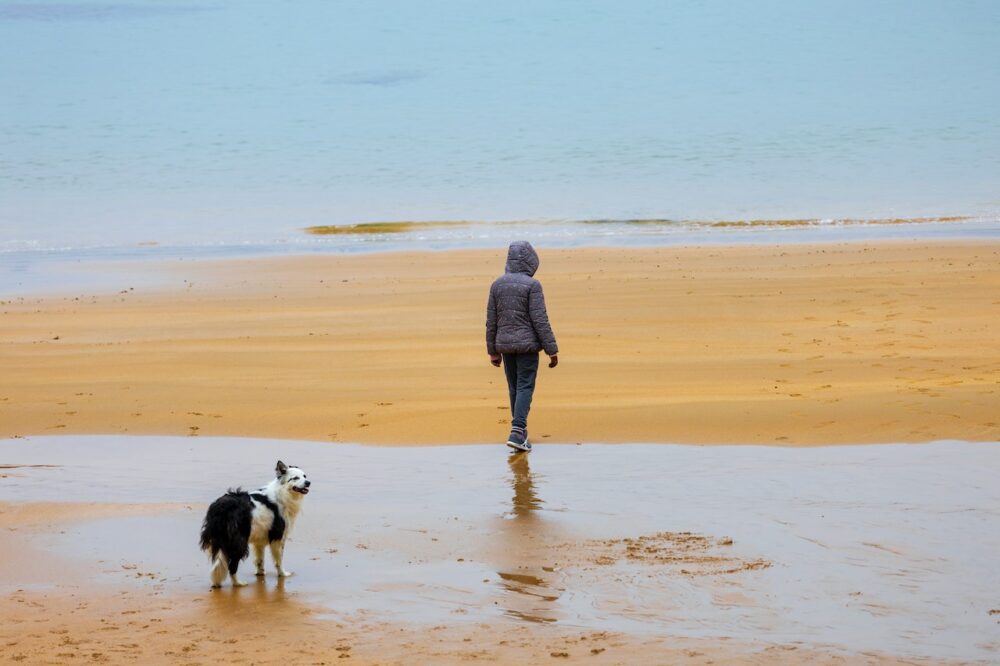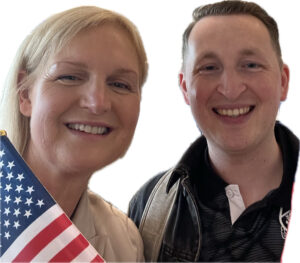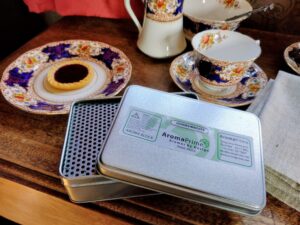Things to Do in Wales to Improve Mental Health This Summer

Statistics often show that reported life satisfaction in Wales is lower than in other UK nations. These figures often go hand-in-hand with poor mental health or mental illness.
Though anyone can be affected by negative mental health, it is more likely to affect people living in rural and/or deprived parts of Wales and people with adverse childhood experiences.
For example, when we look at the mental health needs of people in Wales, we find that 20% of people in the most deprived areas are receiving treatment, compared to just 8% of inhabitants of the least deprived areas.
This is a particularly topical problem at the moment, with mental illness exacerbated by the cost-of-living crisis. Studies show that 53% of the Welsh population has been negatively impacted by the rising cost of living.
Things to Do in Wales to Improve Mental Health
Anyone struggling with a mental health condition or moderate to severe mental health struggles should seek help immediately by going to A&E (for emergencies) or booking an appointment with their GP.
However, there are plenty of people in Wales who are already in treatment or don’t need treatment, but would still benefit from uplifting activities in Wales that would improve their mental health. Here are our top suggestions.
1. Find a Local Mental Health Charity
There are many mental health charities that provide resources for people living in Wales. Some examples are:
- Samaritans
- Relate
- Hearing Voices Network
- Cardiff MIND
- Beat Eating Disorders
- Childline
- Switchboard LGBT Helpline
- 4 Winds
- Respect – Men’s Advice Line
- Wales Dementia Helpline
You can find more information by researching each of these organisations online. Local charities often provide tools such as: helplines, information leaflets, support groups, and useful coping strategies.
If you have a mental health condition, you can contact a charity with a specific focus on your illness. For example, Bipolar UK works in Wales to remove the stigma of the disorder and build a likeminded community via their online forum.
However, people without a diagnosed condition should not bypass this suggestion. There are plenty of charities designed to reach people with a variety of struggles, such as CALM Helpline and Respect (men’s advice line).
2. Join a Peer Support Group
If you are ready to try out a peer support group, you could jump straight to this step and find a local group offering in-person sessions (or even an organisation providing remote sessions).
Most peer support groups are based on a shared difficult experience, such as a mental health condition. This means members can freely discuss their symptoms and challenges without feeling judged by people who don’t understand.
Many organisations offer a range of support groups, rather than focusing on just one or two common mental health difficulties. Some examples of sites you can visit to find a peer support group are:
- Shadows (covers grief and loss, military, autism and additional needs, female survivors, male mental health, carers, and general mental health support).
- Mental Health Matters Wales (groups for eating disorder survivors, young people, and self-harm awareness).
- Dewis Cymru – SWADS (anxiety and depression peer support group).
- Alcoholics Anonymous (alcoholism support groups across Wales).
3. Go Walking or Hiking
Though mental health and wellbeing services are the best resource, there are still strategies you can implement into your life to keep on top of your emotional wellbeing on a daily basis. One of these is walking or hiking.
Fortunately, you are spoilt for choice for great walking and hiking routes in Wales. Finding a beautiful spot to walk in can remind you that there is still so much to enjoy in life, and your mental health issues have not taken it all away.
As you walk, you are releasing endorphins that reduce your stress levels. This means that even if you don’t set out to heal your mental health by walking, you will most likely feel a bit better after a nice walk or hike.
The link between strong physical health and mental health should not be underestimated.
Short local walks on a nearby beach may be all you need, but why not try one of the following hikes:
- Beginner: Ynyslas Dunes, Twm Siôn Cati’s Cave, Nant Gwynant
- Intermediate: Mynydd Rhiw, The Golden Road, Dinas Island
- Advanced: Miner’s Track, Trefriw Trail, Moel Siabod, Cambrian Way
4. Visit a Cosy Café
When we are lonely, we often convince ourselves that leaving the house wouldn’t help – especially if we have no one to spend time with. However, visiting a café is a great way to keep loneliness at bay, even if you do it alone.
Simply getting out of your house and making small talk with strangers can make a huge difference to your mental health.
We weren’t supposed to spend the majority of our lives indoors and away from community, so this tip is all the more important for people who are unemployed or work from home.
Some cafés even offer interesting activities where there is an opportunity to build social relationships with likeminded people:
- Oriel Mostyn Gallery (Llandudno art gallery with a café inside)
- Socialdice (Swansea board game café)
- Gathering Ground (Cardiff bar/café with social events)
- Barnabas Arts House and Café (Newport café with creative classes)
- Xplore (Wrexham science shop and café)
- The Hanging Gardens Café (Llanidloes café with intellectual and creative events)
5. Start a New Social Hobby
If you already have a hobby in mind that you would like to try, find a local group and get involved. Even if your hobby is more individual, there is often a way to integrate into a likeminded community e.g., book clubs for avid readers.
Perhaps you don’t struggle with loneliness, and you would like to work on another aspect of your mental health.
Even so, spending time on a new hobby is a fantastic way to find a purpose, distract yourself from unhelpful thought patterns, and have a reason to get up each morning.
We would recommend searching for your hobby online and looking for local opportunities, or looking up activities in your area to see if any appeal to you.
Getting Professional Help for Your Mental Health in Wales
The most important thing to do to take care of your mental health is get professional help. Research shows that 53% of Welsh people who have suffered poor mental health due to the cost-of-living crisis have not accessed support through their GP.
When you go to your GP, it opens up a world of opportunities for mental health care. As well as suggesting relevant charities and support groups, they can refer you for treatment via NHS therapists, psychiatrists, or specific organisations.
If you can afford any private treatment options, you can access support incredibly quickly in Wales.
For example, anyone battling drug or alcohol dependency or addiction can get in touch with helplines such as Rehab Recovery or Mind Cymru for a referral to addiction services in Wales.
FAQs About Mental Health in Wales
Below, we offer some answers to common questions around the topic of mental health in Wales:
1. What are the Common Causes of Poor Mental Health in Wales?
Mental health is a worldwide issue, so most potential causes of poor mental health are experienced in every country. However, certain triggers are more common in Wales.
As well as genetics, poor mental health is known to be triggered by: deprivation, financial insecurity, homelessness, lack of education, unemployment, poor working conditions and crime/violence.
As Wales has the highest poverty rate of the UK nations (24%), all of these public health issues are prevalent in certain parts of the country. Some specific causes include: high rates of unemployment, low-paid jobs, and a high percentage of people claiming Universal Credit (8).
2. Can I Access High-Quality Treatment If I Live in a Rural Part of Wales?
Yes, you can still find effective treatments even if you live in the Welsh countryside. Many charities, therapists and psychiatrists work in these areas.
There is also the option to access online resources such as websites, text messaging services, and online confidential counselling or psychological therapies.
Depending on your issue, you may need to travel to find the best treatment. For example, if you have a substance or behavioural addiction, there may be a shortage of rehab facilities in your local area.
3. Are There Specific Resources for Parents With Mental Health Problems?
Yes, there are an abundance of parental mental health resources in Wales. You can find parenting advice (e.g., Action for Children, Family Lives and Cry-sis) as well as support for your own emotional health as a parent (CYPF).
As always, general mental health support can be found with organisations such as Mind and C.A.L.L. Though they are not targeted at parents, staff will have supported people through the same issues you are having, so it’s certainly worth getting in touch.





